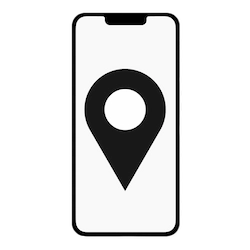Being Sued for a Car Accident: What Can They Take?
Being involved in a car accident is already stressful, but finding out you’re being sued for it can be a new level of anxiety. One of the pressing questions many people have in this situation is: “What can they take from me?” This article aims to shed light on the potential financial implications of such a lawsuit.
Understanding the Lawsuit
When someone sues after a car accident, they typically seek compensation for damages they believe were caused by the other party’s negligence. These damages might include medical expenses, repair costs, pain and suffering, and lost wages.
1. Insurance Coverage
Before diving into personal assets, it’s important to consider insurance:
- Liability Insurance: This is the primary source of compensation for the claimant. If you’re deemed at fault, your insurance should cover the damages up to your policy limit.
- Policy Limits: If damages exceed your liability limits, you might be personally responsible for the remainder.
2. Personal Assets at Risk
If a judgment surpasses your insurance coverage:
- Savings & Checking Accounts: A court can order the seizure of funds from these accounts.
- Property: Depending on the state, some of your property can be seized and sold to cover the judgment. However, many states have homestead exemptions that protect primary residences.
- Wages: Wage garnishment is possible, meaning a percentage of your paycheck can be taken to satisfy the judgment. Limits on the amount and duration vary by state.

3. Protected Assets
Certain assets might be protected, depending on jurisdiction:
- Retirement Accounts: In many places, funds in retirement accounts like 401(k)s and IRAs are protected from civil judgments.
- Trusts: Properly structured irrevocable trusts might shield assets from lawsuits. However, creating a trust after an accident to protect assets might be considered a fraudulent transfer.
- Joint Accounts: Money in joint accounts might be partially protected, depending on the account agreement and state laws.
4. Bankruptcy as a Potential Solution
If you can’t pay the judgment:
- Filing for Bankruptcy: This might discharge some or all of the judgment. It’s essential to consult with a bankruptcy attorney to understand the implications and potential outcomes.
- Impact: While bankruptcy can relieve some debts, it significantly affects credit scores and remains on credit reports for years.
5. The Role of Legal Counsel
An attorney can play a pivotal role:
- Defense: An experienced attorney might challenge the lawsuit, potentially getting the claim reduced or even dismissed.
- Negotiation: Lawyers can negotiate with the claimant’s attorney to reach a settlement, potentially for an amount less than the original claim.
6. Jurisdictional Differences
The laws about what assets can be seized in a lawsuit differ significantly:
- State Protections: Different states offer varying levels of asset protection. For instance, Texas and Florida have generous homestead exemptions, potentially protecting the total value of a primary residence.
- Community Property States: In states like California and Texas, assets acquired during a marriage are considered community property. This distinction can affect which assets are vulnerable in a lawsuit.
Preventative Measures
Prevention is better than cure:
- Adequate Insurance: Ensuring sufficient liability coverage is a crucial first line of defense. Consider an umbrella policy for added protection.
- Asset Protection: Consult financial advisors and attorneys on strategies to shield assets from lawsuits. Regular reviews ensure methods are up-to-date with changing laws and personal circumstances.
Conclusion
Facing a lawsuit after a car accident is undoubtedly daunting, and the potential for personal financial loss can be significant. However, understanding what’s at risk, leveraging available protections, and securing solid legal representation can help navigate this challenging situation. Consult with legal professionals specific to your jurisdiction and circumstances to ensure you’re adequately informed and protected.
Remember, this article provides general information, and you should consult with legal professionals in your jurisdiction for advice tailored to your specific situation.
